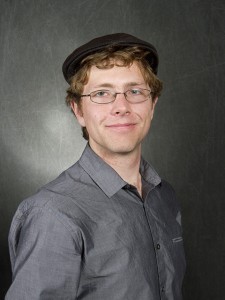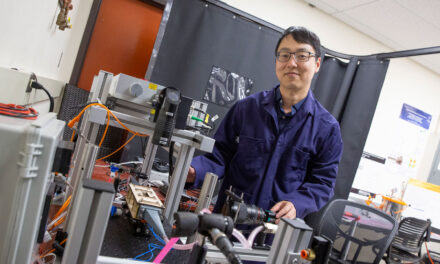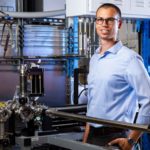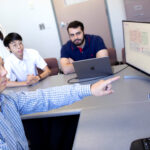
Research aims to ramp up resilience of critical engineered systems

Arizona State University civil, environmental and sustainable engineering doctoral student Daniel Eisenberg.
Daniel Eisenberg’s aspirations focus on nothing less than helping the world become more resilient.
That’s about as simple a way as he can put it. After that it starts to get complex.
“The things I’m interested in doing are so broad that it can sound kind of nebulous when I try to explain everything it can involve,” he said.
It’s the eclectic nature of his interests that led Eisenberg to the School of Sustainable Engineering and the Built Environment, one of the Ira A. Fulton Schools of Engineering at Arizona State University.
He’s pursuing a doctoral degree with a concentration in sustainable engineering – exploring applications of that branch of engineering to technology development, energy systems and infrastructure, environmental protection, the emerging area of industrial ecology, and even social stability.
“ASU was one of the few places with a sustainable engineering program that is very progressive in allowing you to delve into such wide-ranging subjects,” he said.
His decision has paid off. Within his first year of doctoral studies Eisenberg was awarded a highly sought after National Science Foundation (NSF) Graduate Research Fellowship that will provide $32,000 per year for three years toward earning his degree.
In addition, he was awarded an NSF East Asia and Pacific Summer Institutes for U.S. Graduate Students Fellowship that enabled him to spend the summer at Hongik University in Seoul, South Korea, working with a leading resilience scientist and environmental engineer, professor Jeryang Park.
Eisenberg already has an impressive record of work in variety of sustainability-related endeavors.
At the University of California, Davis, where he earned an undergraduate degree in chemical engineering, he worked on hazard assessments of materials used in thin-film solar energy panels.
He followed that up by using support from a prestigious Fulbright Scholarship to study abroad in Brazil, working on projects to improve the efficiency and sustainability of refrigeration technology.
Later he took a position as a sustainability research engineer at the U.S. Army Engineer Research and Development Center in Massachusetts, where he assessed the resilience of military operations and energy systems.
At ASU, he’s been analyzing the impacts new energy technologies could have on the electric power infrastructure systems, working under the guidance of Thomas Seager, an associate professor in the School of Sustainable Engineering and the Built Environment.
Eisenberg has been integrating sustainability and resiliency objectives into collaborative projects with faculty members and fellow students that encompass diverse pursuits in social and ecological studies, technology development and public policy.
He is also working with the ASU-based NSF Quantum Energy and Sustainable Solar Technologies Engineering Research Center (QESST), and is a member of the Integrative Graduate Education and Research Traineeship: Solar Utilization Network (IGERT-SUN) program to produce citizen-scientists equipped to overcome the technical and social challenges to establishing global energy systems that harness solar energy.
Eisenberg expanded on the work he’s doing at ASU during the summer in South Korea. He explored how large-scale electric power systems can be better equipped to prepare for and recover from the impacts of natural disasters through improved information sharing and decision-making.
Beyond all that, he wants to probe “the way human and technological dynamics interact,” he said.
“I want to look at how new technology affects society, not only the environmental impact but how putting new technology into society changes the way we act,” he said. “Knowing that is an important element in understanding how we can become a sustainable world.”
Eisenberg admits that gaining the extensive array of expertise his ambitions will demand “is probably going to end up testing my resilience.”
Media Contact
Joe Kullman, [email protected]
480-965-8122
Ira A. Fulton Schools of Engineering



































